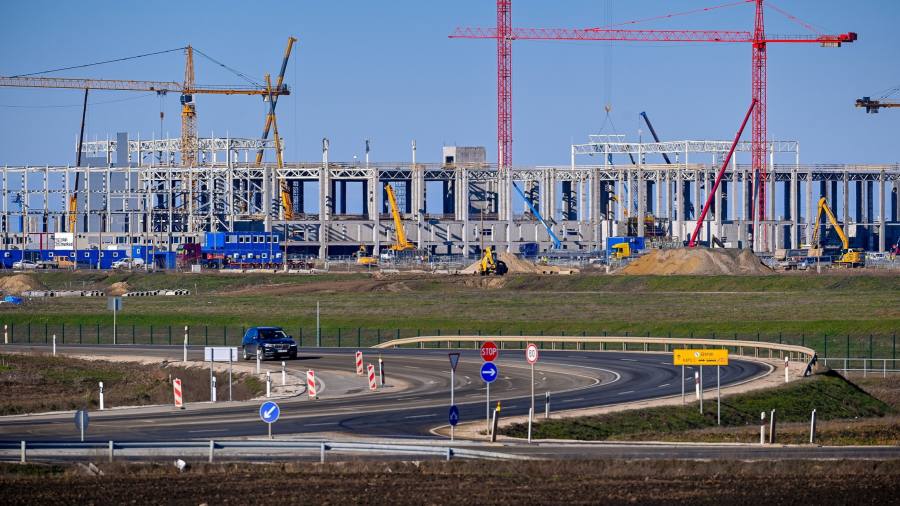Manufacturers around the world are snapping up more European factories despite an economic downturn in the region, as geopolitical and supply chain concerns prompt businesses to bring their operations closer to their customers.
Businesses acquired or leased 9.6mn square feet of industrial space in the region in 2022, a 29 per cent increase over the previous year, according to Cushman & Wakefield. The commercial property broker’s analysis covers transactions in nine European countries, including the UK, France and Germany.
Tim Crighton, Cushman’s head of logistics and industrial in Europe, said he was recently seeing clients “nearshoring” by investing in European production so they are less dependent on China as well as other far-flung locations.
Manufacturers from Asia to Europe were acquiring European factories in response to demand from clients in the continent, who in recent decades had outsourced the production of many of the goods they buy to China and other low-cost manufacturing hubs.
The growing demand for new factories comes as overall take-up of European industrial space declines amid a fall in consumer spending which has prompted retailers and warehouse owners to cut back on investments.
But companies are rethinking their strategy as tensions deepen between western governments and Beijing, as well as the severe disruption to global supply chains during the Covid-19 pandemic.
Crighton said the use of robots in manufacturing, which has minimised the cost benefit of producing in regions with cheaper labour, created a “compelling” case for European businesses to boost production closer to consumers.
Pointing to Mercedes-Benz’s recently announced plans to build its first factory dedicated to electric vans in Poland, as well as BMW’s plans to boost car battery production at a new plant in Hungary, Cushman’s report said central and eastern Europe, where labour was relatively cheap, had in particular seen “major investment in manufacturing”.
Bert Hesselink, client relationship director at European commercial property owner CTP, said manufacturing sites were making up an increasing share of its portfolio since a drop-off in demand for warehouse space.
“[Our clients] are being told, ‘if you want to continue supplying us, we prefer you do it from Europe instead of China’,” he added. Although investments in new sites were increasing manufacturers’ costs during a period of already heightened inflation, he said companies were prioritising securing their operations from the next supply chain “disaster”.
Not all businesses were exiting China, however. Many have seen their supply chains affected by elevated energy costs, which recently helped tip industrial powerhouse Germany into a recession. In April, Dulux-owner Akzo Nobel said that the Dutch group was actually having to source more from China after energy costs forced its European suppliers to close factories.
After years of western multinationals investing in China, business leaders have also warned that Europe lacked the manufacturing labour force to match.
“It’s a challenge [finding people with the right skills],” said Hesselink. “And that needs to be dealt with by, for example, bringing in workers from foreign countries.”
Read the full article here




